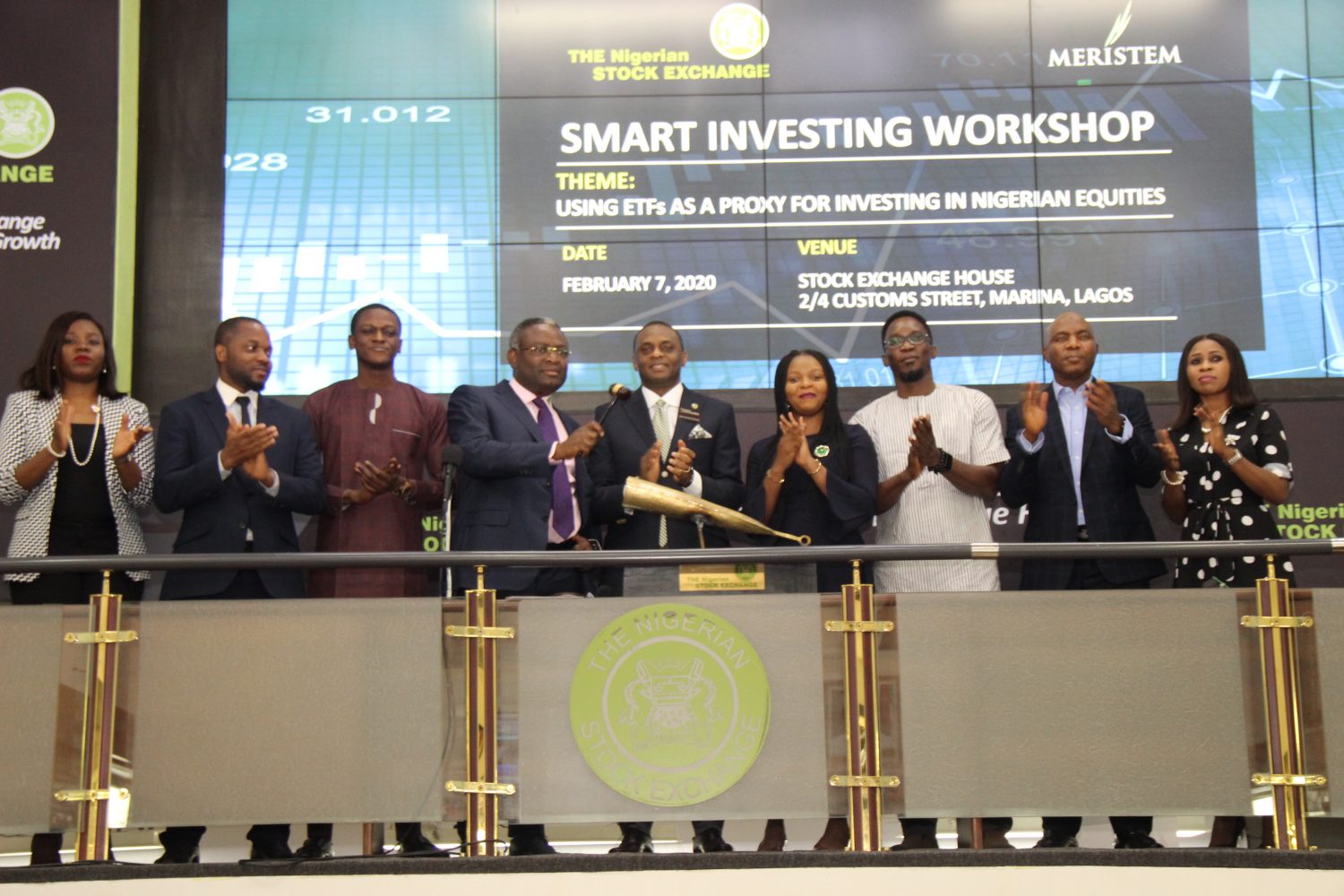The Nigeria Stock Exchange (NSE) has disclosed that it remains committed to the development of the market as it seeks to increase the number of Exchange Traded Funds listed on the Exchange.
Oscar N Onyema, Chief Executive Officer, NSE, disclosed this at the workshop yesterday at the exchange themed “Investing in Nigerian Equities: Using Exchange Traded Funds (ETFs) as a proxy”.

At the event, which was covered by Nairametrics, he added that the purpose of the workshop was to showcase the benefits of indexing and Exchange Traded Funds in accessing broader investment opportunities in the equities market.
“In line with our commitment to developing the market, the Exchange remains resolute in its goal to collaborate with market stakeholders to increase listed ETFs,” Onyema said.
The NSE disclosed that the Nigerian market was fast embracing the usage of ETFs, as it had seen its supply side deepened from a single ETF tracking the price of Gold in 2011 to 10 ETFs currently offering exposure to equities, fixed income, commodities as well as thematic and smart investment solutions.
[READ MORE: NSE appointed executive committee member, FISD)
Onyema said, “NSE prides itself in its position as the second-largest ETF market in Africa with a current market capitalisation of N6.9Billion. Furthermore, ETF offerings in our market have also provided investors risk management and hedging benefits – the commodities backed ETF returned 31.75% for the year 2019.”
What are ETFs? An Exchange Traded Fund is an investment vehicle that tracks an index, a basket of assets or commodity, but trades like regular shares on a stock exchange. ETFs trade on the Exchange Traded Funds Board of the exchange.
Why EFTs? EFTs have the following features which provide a lot of cost-effective ways of trading a basket of shares making, EFTs attractive to investors. These features include:
- Low Cost – EFTs are less expensive to operate than actively managed funds because they have less frequent portfolio changes;
- Transparency – The performance and portfolio composition of an EFT reflects the underlying index or commodity, as the holdings of an EFT closely mirror the underlying index or commodity it tracks;
- Investment Diversification – An ETF is a direct and inexpensive way to attain diversified exposure to an index, commodity, sector or region while reaming in the capital market; and
- Tradability – EFTs can be bought and sold on the Nigerian Stock Exchange via a stockbroker throughout the day based on market prices, which are determined by demand and supply.

The NSE stated that Exchange Traded Funcould be bought on the Nigerian Stock Exchange through any dealing member firm. It added that all fees were based on the value of the trade and Withholding Tax (WHT) on dividend or interest is 10%. Capital gains tax is zero.
However, the workshop ended with fastest fingers quiz to the understanding of EFTs where the second runner up, first runner up and the winner all went home with N25 000, N50 000 and 75 000 in exchange-traded funds courtesy the Nigerian Stock Exchange and Meristem Securities.











